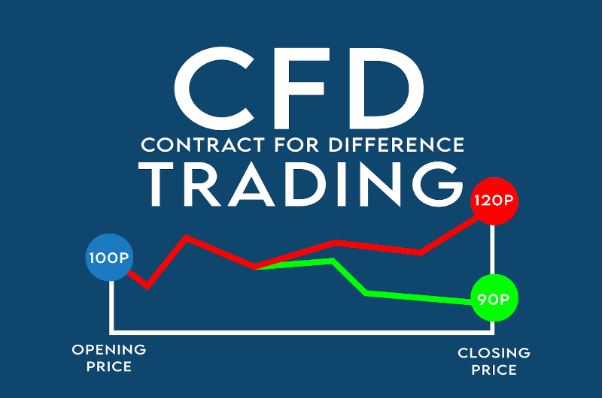Contract for Difference (CFD) trading offers a unique opportunity for newcomers to engage in market movements without owning the assets involved.
This guide simplifies CFDs for beginners, highlighting how they operate, and outlining their advantages and risks.
For an in-depth exploration of CFD trading and to learn how to harness the potential of price differentials across various assets, consider joining us on a journey with AvaTrade’s comprehensive guide on what are CFDs?
 What are CFDs?
What are CFDs?
CFDs represent a derivative that allows participants through it to make speculations on the price movements of different financial instruments, such as equities, indices, commodities, and currencies, without actual ownership.
How does CFD trading work?
Initiating a Trade: Investors open positions based on whether they anticipate an asset will increase or decrease in value.
- Leverage and Margin: Because of the leverage in CFDs, a trader can hold a position and commit only a proportion of its total value. This may magnify the effect of gains or losses.
- Directional Trades: The investor can take a ‘long’ position, expecting the price to rise, or a ‘short’ position if he expects the price to fall.
Benefits to Trading CFDs
- Market Versatility: It facilitates strategies both on upward and downward price trends.
- One single account for access to broad markets: Traders can speculate on a wide variety of international markets.
- Duty-Free: No stamp duty is required, although the typical costs, including spreads and overnight financing, are applicable.
Associated Risks
- Volatility Risk: Any rapid or abrupt market changes may affect the positions negatively.
- Leveraged Risks: These are risks that have high leverage, which may cause great losses in addition to gains.
- Broker Risk: There is always the risk that the broker or another party may default on their obligations.
Risk Management Techniques
- Stop-Loss Implementation: It can cap losses by its mechanism of closing positions automatically at a set level.
- Measured leverage use: This means applying caution in using leverage to balance out the expected returns against relevant risks.
- Continuous Education: Keep yourself updated through constant learning about market conditions and effective trading strategies.
Diversification Strategies
In view of this, CFD trading calls for a very important aspect: diversification of the trading portfolio. This could be represented by the diversification across asset classes, equities, commodities, and currencies to observe minimal risk posed by market volatility.
Therefore, through diversification, losses that are made in one sector may be offset by gains elsewhere, hence cushioning against any unexpected changes that may happen within the market.
This strategy is even more imperative in CFD trading, where these shifts in markets may suddenly and dramatically occur.
CFD Trading and Technological Advancements
Technology has impacted the trading in CFDs to a great degree. Improvements on trading platforms provide supplementary sophisticated tools of analysis and the use of automated trade systems, which make the process of making a decision incredibly better.
It will help traders access live data more quickly, speed up trades, and better manage positions.
Together with that, making full use of the more advanced technologies enables more informed trading strategies and improves general performance within the volatile CFD market.
CFD trading offers a high level of flexibility and market exposure; because of these realms of benefits, it attracts many traders.
However, on the other side, there exist risks resulting from substantial rewards due to market instability and leverage.
It is important for new traders to engage in CFDs with advanced knowledge of how things work and the risk exposures involved. Effective risk management and continuous learning are very vital if one has to reap benefits in such a challenging yet potentially rewarding trading environment.
 What are CFDs?
What are CFDs?







